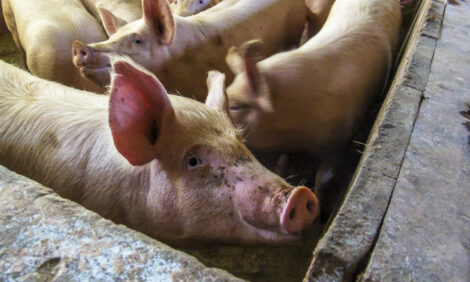



Fish Oil Boosts Nutritional Value of Low Cost Nursery Pig Diets
CANADA - Research conducted on behalf of Swine Innovation Porc indicates including fish oil into lower quality less costly nursery pig rations will result in performance equal to those feed higher quality more costly diets, writes Bruce Cochrane.Researchers have found, while feeding less complex less costly diets during the nursery phase will slow piglet growth during the nursery phase, the pigs will recover that lost performance during the early grower phase.
On behalf of Swine Innovation Porc, scientists are now looking at the relationship between the use of those less complex diets and susceptibility to disease.
Dr Kees de Lange, a professor of swine nutrition with the University of Guelph, says the intent is to gain a better understanding of how the response to those higher and lower complexity diets may differ under different health statuses and with different pig genotypes and identify what aspects of diet support the pigs immune system.
Dr Kees de Lange-University of Guelph:
Somewhat to our surprise, we are finding out that the fat quality in those diets is more important that the complexity of the proteins that we feed to those animals.
In our most recent experiments we have identified, for example, that some of those Omega-3 fatty acids, those health promoting fatty acids that are present in fish oil, are able to support immune system to such an extent that if we include fish oil in those lower complexity cheaper diets we get similar performance when you compare it to those more complex diets.
So in other words, it looks like we may be able to make the diets less complex and cheaper, and then by including a bit of fish oil we are able to bring performance and also the disease resistance up further, but that is something we need to continue to look at a little bit further in detail over the next couple of years.
Dr de Lange says the original studies suggest using these lower complexity diets can reduce production costs, but before we can come to that conclusion, we have to get a better understanding of how diet quality interacts with the pig genotype and on farm environmental conditions.








